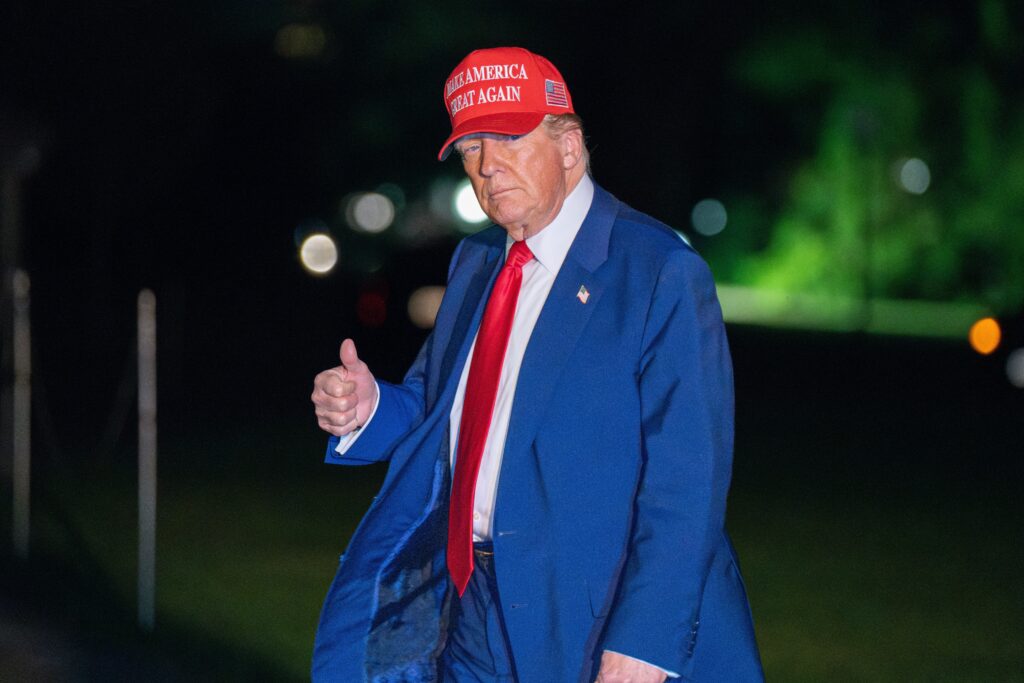A US appeals court has ruled that most tariffs imposed by Donald Trump are illegal. The decision delivers a significant setback to his trade agenda and sets up a likely Supreme Court battle.
The ruling cancels Trump’s “reciprocal” tariffs on dozens of countries. It also overturns levies applied to China, Mexico and Canada.
Court rules Congress holds tariff authority
In a 7-4 decision, the US Court of Appeals for the Federal Circuit declared Trump’s tariffs “invalid as contrary to law”.
Judges rejected his argument that the International Emergency Economic Powers Act gave him authority. They emphasized that only Congress has the constitutional power to impose tariffs.
The ruling will take effect on 14 October unless the Supreme Court intervenes.
Trump criticizes decision
Trump attacked the ruling on Truth Social. He warned that removing the tariffs would “literally destroy the United States”.
He called the appeals court partisan and said the tariffs were essential to maintain national strength. Trump predicted that America would ultimately prevail.
Emergency powers justification dismissed
Trump had defended his tariffs under the IEEPA. He declared a trade emergency, claiming deficits threatened US security.
The court disagreed. In its 127-page opinion, it said the IEEPA “neither mentions tariffs nor limits presidential authority to impose them”.
Judges stressed that Congress has historically reserved tariff powers and only delegates them explicitly.
Lawsuits from states and businesses
Two lawsuits brought the case. Small businesses and a coalition of states challenged Trump’s April executive orders.
The orders imposed a 10% tariff on nearly every country. They also introduced “reciprocal” tariffs on dozens of nations. Trump described the move as America’s “liberation day” from unfair trade.
The Court of International Trade had previously ruled the tariffs unlawful, though that decision was paused during appeal.
Tariffs on allies and China removed
The appeals court also struck down tariffs on Canada, Mexico and China. Trump had argued they were necessary to prevent drug imports.
Tariffs on steel and aluminium remain in place. They were enacted under separate presidential authority.
White House warns of economic risks
Before the ruling, White House lawyers issued warnings of serious consequences. They claimed revoking the tariffs could trigger a collapse similar to 1929.
They said the US might fail to repay trillions already committed by foreign partners. Such a scenario, they argued, could weaken security and harm the economy.
The ruling also casts doubt on trade agreements where countries accepted lower tariffs in exchange for concessions.
Supreme Court likely to weigh in
The case is now expected to reach the Supreme Court. The justices have recently limited presidential actions taken without clear congressional approval.
During Joe Biden’s presidency, the court blocked climate rules and struck down student debt relief, citing the “major questions doctrine”.
The Supreme Court will now decide whether Trump’s tariff program constitutes lawful executive action or presidential overreach.
Conservative justices may shape outcome
Trump lost in the appeals court, where only three of eleven judges were Republican appointees.
The Supreme Court, however, has six conservative justices, including three nominated by Trump himself.
That majority could prove decisive in a case that may reshape presidential authority over trade for years to come.


